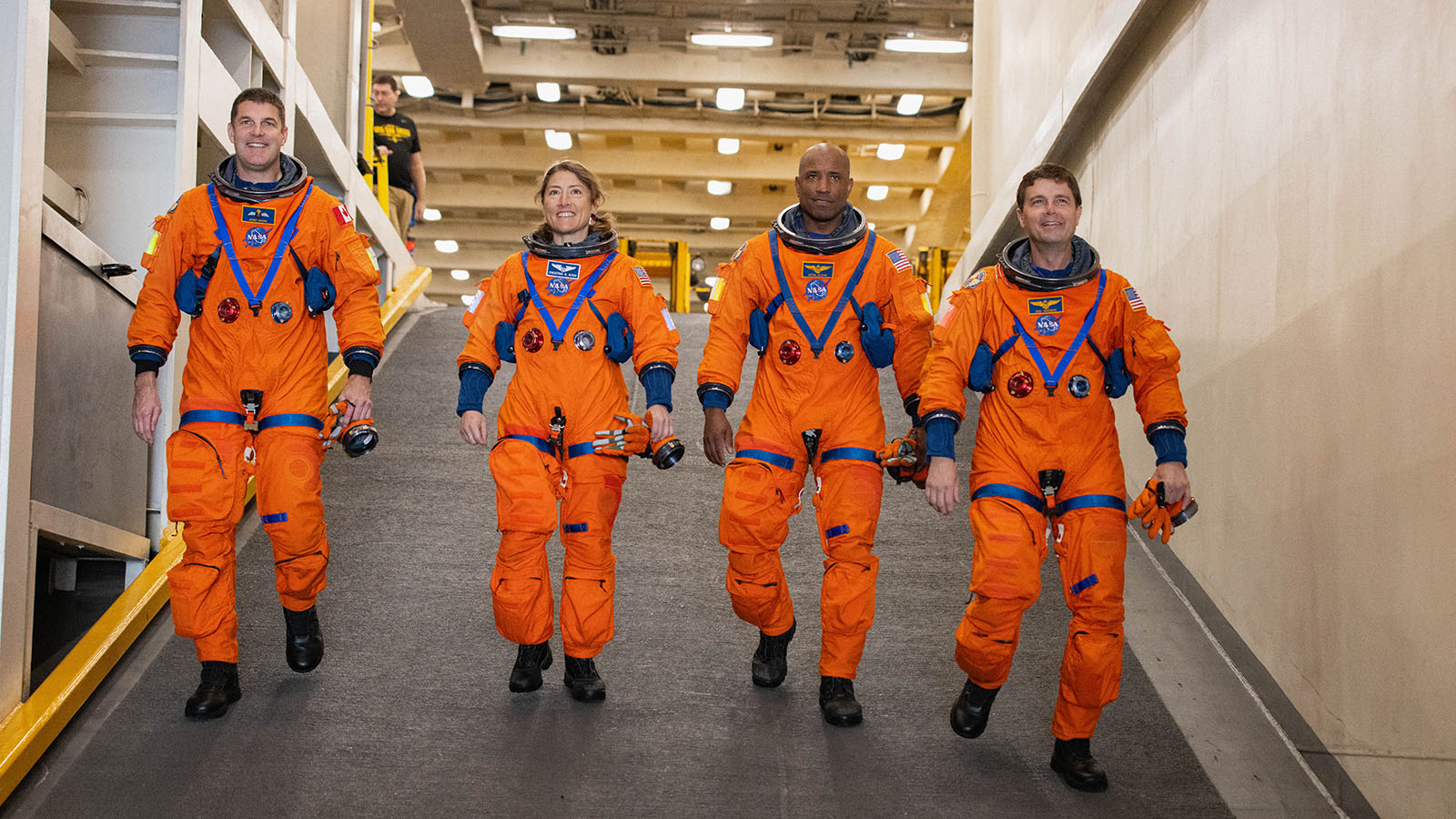Stay Up to Date
Submit your email address to receive the latest industry and Aerospace America news.
A sizable chunk of this issue, 31%, is devoted to telling you about work funded under NASA’s Artemis moon program. If that sounds like a lot, it happens to be the same percentage of the NASA budget that will be spent on Artemis this fiscal year.
Does NASA have its priorities right? Often, I have to put my personal opinion on a shelf in my role as editor-in-chief. On this one, that’s not necessary, because at this writing I have questions but no opinion yet. I’m conflicted — and perhaps I’m not alone.
The Artemis work is no doubt technically bold.
Read, for example, our story on the upcoming VIPER rover that’s due to be landed at the lunar south pole next year. Artificial intelligence will be put to work in a new way.
Or consider the cover story about next-generation spacesuits. You’ll learn how NASA, Axiom Space, Collins Aerospace and SpaceX are doing more than creating new hardware. They are providing tools that could help democratize living, working and playing in space. Right now, NASA has 48 astronauts who are eligible for flight assignments. Are we about to see an explosion in the number of spacefarers through commercial exploitation of low-Earth orbit, cislunar space and the surface of the moon? If so, the suits will be ready for them.
There is more work to do, however, to prove that vast economic potential truly exists away from the planet. The value of the potential goods and services in space has to be balanced against the investments required to make them economic reality. Research in LEO could be the best gauge, but despite decades of intriguing medical and materials experiments there, a consensus has yet to emerge about the economic potential even farther into space. “For ISS, I think the thing that’s still missing is some kind of fundamental scientific breakthrough,” says Dave W. Thompson, one of the founders of Orbital Sciences Corp., in this month’s Q&A. “I just don’t know that they’ve ever gotten it. This goes all the way back to when we were trying to cook up some argument for nonspace companies to fly some kind of materials processing experiment on the shuttle,” he adds.
Of course, reading the Thompson interview made me think of the catalyzing effect that Artemis is probably having at this very moment. The company that Thompson founded with two business school friends, Bruce Ferguson and Scott L. Webster, got its start with a NASA contract related to the space shuttle program. The next Orbital Sciences Corp. is probably being born right now because of Artemis.
At the same time, Artemis is playing out with opportunity costs that aren’t always visible. Some spacecraft won’t be built and some research won’t be conducted because of it, or they will be deferred for years. It’s how budgeting works. We at Aerospace America have it easier. If we overdid it on Artemis this next month, we can rebalance next month.
About Ben Iannotta
As editor-in-chief from 2013 to March 2025, Ben kept the magazine and its news coverage on the cutting edge of journalism. He began working for the magazine in the 1990s as a freelance contributor. He was editor of C4ISR Journal and has written for Air & Space Smithsonian, New Scientist, Popular Mechanics, Reuters and Space News.
Related Posts
Stay Up to Date
Submit your email address to receive the latest industry and Aerospace America news.




